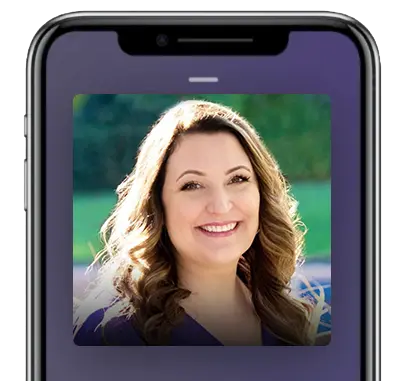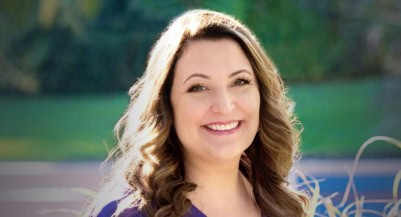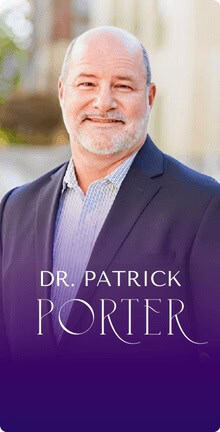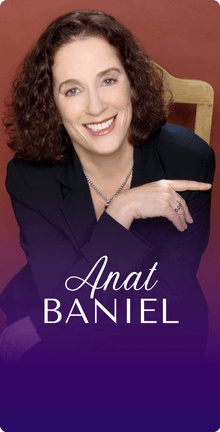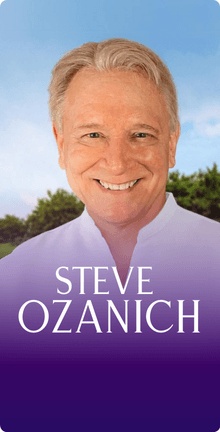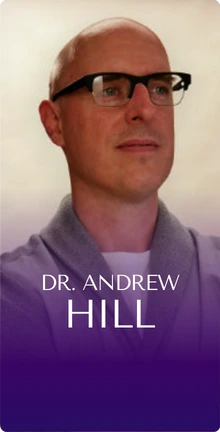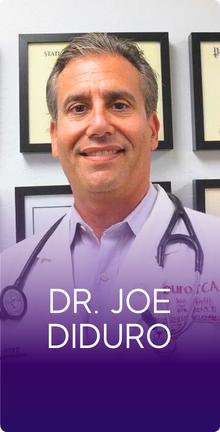In this Episode
- [02:27]Stephan introduces Lindsay Smith, founder of The Healthy Brain Center. They share how they know each other, as well as Lindsay’s journey establishing The Healthy Brain Center, finding Dr. Saad Shakir, and developing their collaborative approach to patient care with other therapy centers.
- [10:08]Lindsay describes the serendipitous or even miraculous aspects of discovering TMS, including various use cases.
- [15:18]Lindsay explains her strategies for work-life balance, productivity, and managing TMS treatments. She outlines the conditions treated with TMS, standard treatment protocols, and details on insurance coverage.
- [21:57]Stephan inquires whether TMS could assist an ischemic stroke patient. Lindsay covers TMS efficacy, current research, and its potential applications for performance enhancement.
- [28:13]Stephan and Lindsay discuss her facility, The Healthy Brain Center.
- [32:27]Lindsay and Stephan reflect on their personal practices of journaling and maintaining a positive outlook, exploring the philosophy of life as a game and related spiritual concepts.
- [43:35]Lindsay provides information on how to connect with her and explore opportunities for TMS treatment.
Lindsay, it’s so great to have you on the show.
Thank you so much. I’m so excited to be here with you.
We met through a mastermind that we’re both in called Maverick1000. Yanik Silver is the founder of Maverick, and he was a past guest on this podcast. Amazing human. How long have you been in Maverick? Maybe share a highlight, some sort of magic moment, epiphany, or something that happened because of Maverick.
I have not been in it very long. The event we met at is the only one I’ve been to so far. But it’s been really cool so far. I’ve met really awesome people and am excited about some of the upcoming trips that we’re taking. I’m really excited about it. I think the best part of the trip that we were both together a few months ago was just the people I met. The people were incredible, and everyone had such great hearts for what they did in business, but also just for the world and the difference they wanted to make. It was just really cool to be around people with similar hearts, minds, and things they care about.
What I like the most about them is they’re pretty woo-woo because I’m pretty out there in that regard. If somebody is really not that way, very materialistic and maybe even atheistic, it’s harder for me to connect with them. Maverick is so welcoming, and everybody’s spiritually on the path. I really like that.
They definitely don’t think anything. If I’m talking about some energy work that I’m doing or whatever, no one’s going to be like, “Oh, that’s really weird.” They might just be like, “Huh, what? Tell me more.”
Absolutely. All right, let’s get into your origin story. Because you created this Healthy Brain Center for a purpose, you had a challenge that became a gift and has now since helped a number of people based on what you learned through that process. Could you share your story?
First of all, as you talked about earlier in the bio, I own two mental health counseling centers and am a licensed therapist. I was already doing that and really into making a difference in people’s lives and helping them through mental health challenges. That was already all part of the fabric of my being. Back at the end of 2019, I was in a car accident, and I had a traumatic brain injury that was very significant.

For many months, I couldn’t work at all. Thankfully, I had great friends and family members and a great team who could step up and take care of the business while I couldn’t function, to be there at all. Over time, I was able to start working again. But still, to this day, I haven’t gotten back to where I’m 100%, and my brain’s functioning like before. My brain is a lot better, but it has not been getting much better over many years.
I was trying everything I could think of. We talked about woo stuff, right? We’re into alternative stuff. I tried everything, everything that I could find out about. I tried it for my brain. I tried hyperbaric oxygen treatments, NAD infusions, and light therapy for my brain. I did several different types of chiropractic care. I did energy healing. I did all kinds of things to try and help heal my brain. It got a little bit better, but it was still not good. It was very frustrating because it was three and a half years, and I still was really, really struggling.
Then someone told me about TMS (Transcranial Magnetic Stimulation). They said it’s on the label. The FDA-approved use is for depression and OCD, and now smoking cessation as well. But it’s used off-label for a lot of other things, including brain injury. I went to receive this TMS treatment for my brain injury. It took a while, but then, about a month and a half after my TMS treatment, my brain was functioning much better. I felt like I had kind of gotten my life back.
I was so excited because my brain hadn’t been working well at all for the previous three and a half years since the accident. I finally felt like, “Oh my gosh, I’m going to be able to live a normal life again and use my brain again.” I also felt frustrated and dismayed—a lot of different things about it. “Why don’t people know about this? I’m in the mental health industry. I own two counseling centers. I work with tons of therapists and tons of clients. I knew nothing of TMS.”
If I didn’t know, and I was a therapist in the field, I know that there are many other people, professionals, and tons of potential patients who could be dramatically helped by TMS who just don’t know that it exists. Then I became passionate about, first of all, whether we can do this like, “Can we start a TMS center to provide this service in a super high-quality, loving, compassionate way?” Because that’s how we work at our counseling centers. I really wanted to be able to do that.
The second piece is to be able to really focus on education and just get the word out about TMS, about who it can help, and about the fact that it can offer hope and healing. When you feel like, “I’ve tried everything, nothing’s going to help my depression. I’ve been on seven medications. I’ve been in therapy for 23 years. Nothing’s going to do it,” or “I’ve had OCD for seven years. Nothing has made a difference. I just feel like giving up.” Those are the people asking, especially those we want to reach because they don’t know this is an option for them.
There are a lot of people who can benefit from TMS, but some people with mild to moderate depression might go to therapy and go on medication, and they might be fine.
There are a lot of people who can benefit from TMS, but some people with mild to moderate depression might go to therapy and go on medication, and they might be fine. They might be able to get through it fine. But for the people who haven’t worked for them, or if they’re like, “I don’t want to take medication,” then look into TMS because this might be able to provide you the hope and healing that you have not been able to get in other places. I just feel really passionate about people learning that this exists so that they can look into it to determine if it might be a good option for them.
Amazing. You are on a mission. You’ve got an important mission and purpose that you’re fulfilling now. Do you feel this was meant to be because it was all divinely orchestrated? Maybe you even had a soul contract that you agreed to or volunteered to have this accident and then tried everything, discovered TMS, got the relief, and started sharing this technology with the world.
100%, yeah. Of course, I didn’t want the accident to happen. “Would it have been nicer if my brain never struggled in this way?” Absolutely. I choose to live every part of my life, believing that life is happening for me, always in all ways.
What would be an example of something that seemed synchronistic or miraculous about discovering TMS when you had tried all these other things? Was there some sort of chance meeting that occurred or some unusual circumstance where you discovered TMS not in terms of?
I discovered TMS, but once I had kind of been put on my heart, I think I needed to start a center doing TMS. I think we need to be able to do it in a different way, and I think we need to be able to really focus on the education piece of it, which we’re still working on. But once those things came into my field and I knew I was meant to do it, it was really interesting how things started to unfold.
I choose to live every part of my life, believing that life is happening for me, always in all ways.
We were concerned it would take a long time to find a qualified, competent, compassionate psychiatrist to lead our program because I couldn’t do this by myself. I’m not a medical professional. I do not have the ability to prescribe TMS. I don’t have the knowledge about it that a psychiatrist who is practicing TMS does. That was what we were most concerned about. We ended up finding an absolutely incredible medical director very quickly.
We were working with several different recruiters from different companies. We were doing all these different things to try and find the psychiatrist. It happened really quickly. I just read through a little message I sent. He wrote back and said, “Yes, I’m interested. Let’s talk.” His name is Dr. Saad Shakir, and he was actually part of starting the Clinical TMS Society. He has been doing TMS since 2010. Previously, he had six different locations with 17 different TMS machines.
He ended up selling that business and then wanted to come back in a smaller capacity but still be able to contribute to the field because he feels passionate about TMS and the difference it makes in people’s lives. He’s treated over 6,000 patients using TMS, which is pretty phenomenal. He has a real breadth of experience, which is really incredible for our patients.
Oh, that’s great. Sounds like you didn’t have to pay an expensive recruiter to bring this person on.
Yeah, it unfolded in a really lovely way. Same thing, we found our TMS technician very quickly. There were a lot of pieces that just unfolded in a really beautiful way.
TMS is localized with magnetic pulses. It does not affect your whole system. It only affects one area that is receiving the TMS. Share on XOnce you’re on your mission, the universe conspires to make it happen for you. What would be some examples of use cases for TMS? You gave yours a traumatic brain injury. You had brain fog. You couldn’t think well or effectively and couldn’t work. What are some other depressions? Can you give us some examples, use cases, or some success stories anonymized, of course, for some of your clients?
Let me go backward to one second. For me, it wasn’t so much a brain fog as it was. I couldn’t do what I could previously do. I knew what I could previously do. I just couldn’t do any of it. When I tried to focus and work, then I would get a migraine. The migraine is really what stopped me from being able to continue working. That was what the TMS helped with, and it made it so that I could work for longer periods of time. I’m not back to where I was before the accident, but I am so much better than I was before. So that was for me with a brain injury.
With your migraines, do you not have them anymore, or do you just have them with less frequency, or does it take a lot longer for them to kick in after you put in a workday? How does that show up for you now?
Kind of yes to all of those questions. How that works is I can work for longer periods, and then I can tell, like in my brain, when it’s starting to be too much. If I stop working, when it starts to feel too much, I get a little bit of a headache. If I stop working, then I won’t get a migraine. However, if I push through that, I can tell my headache. But if I need to push through it for some reason or I feel like I just have to get something done, then it will still turn into a migraine. I just hope I can get things done before the migraine happens. I try to avoid that as much as possible, but sometimes I’m like, “I have to finish this thing.” Usually, It’s very rare for me to get them now. I know when it’s coming, and I have a way longer period that I can work.

Do you work full-time or part-time, or how do you avoid getting to that place where you get triggered to end up in a migraine?
I work part-time to avoid that. I can do a few hours a day, and as long as I don’t do it every day, I can do a little bit longer on some days. It just depends. Some weeks, my head will be better and function better. For some weeks, it’s a little bit worse. I know I can’t push it too much, but I’ve done two rounds of TMS now, and every time I do it, it gets better until I push myself too hard, and then it sends me backward again.
I guess the solution, now that I’m saying it out loud and thinking about it, is to not push myself too hard so I can sustain, you know, the results longer. But that’s another thing about TMS. Some people receive TMS, and then they’re good. They don’t need it again. Then, some people receive TMS, and then every once in a while, it could be once a month. It could be once every four months; it could be twice a month.
They might need a maintenance session or just one TMS session maintenance. Then, some people, which is what the case was for me, need another round of the treatment, like a full round of the treatment. Depression is the biggest thing that TMS is used for. I mentioned earlier some people will come to get treatment for depression with TMS because they don’t want to take medication.
Having a positive attitude and being proactive in your journey can influence your path significantly. Life unfolds according to our perspective and actions. Share on XBut usually, it’s when they have tried several different medications, and they haven’t worked, or they’ve tried medications and have such bad side effects that they can’t continue. The cool thing about TMS is that when you take a medication, it affects your whole body. Like your whole system is affected. I’m not a doctor, and I don’t know all the science behind it, but essentially, you’re swallowing a pill, or it’s getting injected or whatever, and then it enters your whole body. It’s affecting all of you.
But with TMS, it’s localized with these magnetic pulses. It does not affect your whole system. It only affects the one area receiving the TMS, which is really cool because then you don’t have the side effects. Insurance will cover treatment resistance. They call it depression. It depends on your insurance as to what exactly that means. Some failed one medication, and some failed four medications. That’s usually the range is between one and four.
Many insurance companies also require that you have tried therapy, and then they’ll cover TMS if you still haven’t had success. Depression is the biggest one, and I’ll talk about a few others in a minute. With depression, you can get standard TMS, which is typically 36 sessions over the course of daily sessions, so five days a week for six weeks. Then, it tapers off over the following three weeks. Each session is between 3-19 minutes, depending on which type of TMS you’re using, which depends on that individual’s brain and what will work best for them.
That’s a standard course of TMS, which insurance covers. Recently, there’s been a different type of TMS called accelerated TMS. This came out of Stanford, something called the SAINT protocol, which is ten sessions per day for five days. Many people are interested in doing that and have been coming to us to do the accelerated protocol because they can have the same benefits in only five days. Instead of waiting several weeks to get better in five days, they’re feeling better.
You were asking for an example that ties into several things TMS treats. Also, TMS can help with anxiety, especially if it’s depression and anxiety together. There have been incredible results around that. It’s also FDA-approved to help with OCD. Several other things, too. But I wanted to mention those three for this example I’m giving. A couple of weeks ago, a patient came through and completed the accelerated TMS.
This patient wanted to have faster results. It worked into her life better to do just the one week versus daily treatment. Although with the daily treatment, I will say you can still work your job, you can go to school. If you’re a teenager or a college student, you can live your life. You go to treatment, you’re there for 30 minutes, leave, and go back to your life. There’s no downtime. There’s nothing you have to do ahead of time to prepare. There’s nothing you have to do after.
It’s easy to fit this treatment into your life, which is really cool. But some people want to do the condensed treatment. This person did the accelerated treatment and came out of the treatment. She told us, “You know when I went into this, I didn’t want to have too much hope because I’ve done so many things that have failed. I was nervous about having hope around it. I really tried to keep my expectations pretty low.” She said that this far exceeded her expectations. Her depression is better, her anxiety is better, and her obsessive thoughts and compulsions are better.
She had all three of those, and all three came out the other side better than her scores. We take patients’ subjective reports, but we do scales for them to complete before treatment, during treatment, after treatment, and then significantly after treatment every week for a while, then every month for a while. We really want to be able to track them and catch if it’s starting to come back so they can get in for maintenance treatment and retain these incredible benefits.
This patient’s scores went down so significantly. We’ve seen that again and again and again. To be clear, it’s not a 100% success rate. We’ve also had a couple of patients come through, and they have not seen great benefits from it, but the majority have seen incredible benefits. It’s heartwarming, especially when they feel like I’ve tried everything. Honestly, this is how I felt with my brain injury. I’ve tried everything. I’ve done everything.
Every doctor I can find has suggested, and nothing has helped. I’m still really suffering. That’s how these patients feel, too. They’re like, I’ve done everything everyone has told me to do, and I’m in so much pain. I am not getting better, and my life sucks. A lot of times, it is what they’re feeling because nothing they’re doing is working and helping in the way that they want.
They know they see other people feeling better. They know how they used to feel, and all they want is to feel better again. Nothing has helped them. Then, they come to TMS. A lot of the time, TMS can help in a way that nothing else has been able to.
Amazing. Now, I have a friend who had an ischemic stroke. I’m curious if TMS could be something that might help him.
Absolutely. Again, I’m not a medical professional. I can’t say for sure. Each individual needs to talk with either their doctor or, ideally, a TMS specialist. The first step when you’re interested in TMS is to talk to the TMS director at our center. You consult with them, and he will help you determine if TMS will be a good fit for you. There is quite a bit of research showing that TMS can help people who have had a stroke. Now, you mentioned a certain type of stroke.
I am not familiar with which specific types of strokes it helps versus not, but I do know that they’ve been doing more and more research on using TMS to help with stroke rehabilitation, and they’ve been finding some success there. The same goes for many other things, too, with fibromyalgia, other types of chronic pain, migraines, ADD, ADHD, and mild cognitive impairment. The beginning stages of Alzheimer’s or other types of mild cognitive impairment. Several different things.
They’ve even done some research around performance enhancement, just using it for performance enhancement. There’s not a lot of strong research around that one, but some people have found it effective. So it depends on the person. It depends on what the doctor treating them feels comfortable using TMS to treat because a lot of it is still experimental. They’re saying, “Let’s try it. Let’s see if that doctor feels comfortable with it, given the history that the patient has shared.”
It’s not like a risky procedure or something. It’s not like you’re going under the knife or anything. It’s not that you’re getting painful shock therapy or something like that. Can you explain what it’s like to get a TMS procedure?
There are no systemic side effects with TMS. The biggest thing is the discomfort at the site where the magnetic pulses are coming.
Absolutely. You’re sitting in this chair. It’s like a dentist chair, except you don’t lean back as far as you would at the dentist. Then you’ve got this big machine behind you, maybe the size of a refrigerator. Then this kind of arm comes out with this magnet, and it goes on your head and just sits there. It doesn’t hurt as it’s touching. Then, when it starts running the magnetic pulses, what I’ve heard other people talk about, too, is it feels like a little woodpecker.
You can feel it on your skull. You don’t feel the inside part of it. You just feel it on your skull. Some people find it a little bit uncomfortable. Some people tolerate it totally fine. Some people like, “Oh,” and then they’ll take Advil or Tylenol before coming in. That is usually sufficient. Also, the technician can adjust the levels based on tolerability. I didn’t specifically ask about this, but I would like to talk about it, too—the side effects.
As we mentioned earlier, there are no systemic side effects. The biggest thing is the discomfort at the site of where it’s coming in, where the magnetic pulses are coming. But then that’s gone as soon as it’s over. Some people have a little bit of a headache, but that usually goes away after the first few sessions. Then they don’t have that anymore. It doesn’t. That doesn’t happen anymore. But again, it’s person to person, so it depends.
But there are no big side effects. There’s a rare side effect of a potential seizure, but it does not happen often. I forget what the statistics are off the top of my head, but it’s extremely rare. The potential side effects happen to just some people, such as the uncomfortableness of the head and headaches, which are tolerable.
Now, you mentioned earlier scoring or having a scale of being able to understand what empirically the person is getting in terms of benefit, and I’d love to hear a little bit more about that scoring. Is it just kind of the person saying on a scale of 1 to 10 that they feel this much better? I’d love to hear a little bit more about that. But I’m especially interested in hearing if you guys have ever tried any scans after the fact, like before and after on a QEEG or SPECT scan, to see if there is tangible improvement you can see on the screen.
That’s a great question. We have not really done the scans. We are hoping to do that in the future. We’ve played around a little bit with doing the EEG, so we use several different. I think we have five scales validated through scientific research, and they’re pretty common scales. I don’t remember all of them off the top of my head. The PHQ9 is an anxiety one. There are two anxiety ones and two depression ones.
I think we use the Burn’s Depression Scale. The other four are ones that the patient completes before they start treatment. Then, if they’re using the standard protocol, they complete it once a week. They complete all of the scales. If they’re using the accelerated protocol, they complete it daily. It’s cool to be able to see those scores go down so significantly during the course of treatment.
Are there people who may be clients or whatever? Where it doesn’t help at all? Were you able to guess that ahead of time, or was it a big surprise?
There are people who say it doesn’t help at all, unfortunately. Fortunately, there are not too many, but it’s unfortunate for those who fit into that category, which doesn’t help. No, you can’t really tell ahead of time. Usually, if you’re doing the standard treatment of 36 treatments, you start seeing results by about treatment 20. However, some people see results earlier, and some people see results later, and then there are the few who don’t see results.
How long has your facility been in operation for?
We’ve just been open for a few months. It’s like six months.
TMS might be able to provide you with the hope and healing that you have not been able to get in other places. Share on XIt’s still early days. You’re going to hopefully have lots more successes to shout from the rooftops about.
Yeah, it’s really fun to see the patients who just make such big progress, and their lives have changed so much, and they’re so happy and excited about the changes, which is really, really cool to see and be part of.
Amazing. Now, do you have plans to franchise or establish multiple locations of The Healthy Brain Center?
I don’t have any plans to franchise at this time. I would love to, in time, establish multiple locations. I feel like we are still in the stage of getting our feet under us. We are now contracted with several major insurance carriers, but we’re still working on some other contracts. I feel like we’ll get there in time, but we’re not there quite yet.
How does this tie into your other businesses, the Teen Therapy Center and Family Therapy Center? Do you have some sort of tie in there where sometimes a teen who might be potentially suicidal can get TMS treatments from The Healthy Brain Center facility?
It definitely goes both ways. We’ve had people at our counseling centers. Their therapists have recommended that they talk to our TMS medical director to see if TMS might be a good fit for them. Then we’ve had people who are getting TMS, and they end up also coming to the centers for counseling. We’re also referring them to other centers, depending on exactly what they’re looking for in terms of the counseling.

One patient we had who didn’t have good results from TMS didn’t have bad results. They just didn’t have any results, which is unfortunate. However, that patient ended up going to the counseling centers and working through some things with counseling. That’s great that we were able to at least help in that way.
Do you still do counseling? Because I know you’re certified and licensed.
I’m licensed, but no, I don’t practice anymore. I miss it sometimes, but I think I get the good feelings I would get from helping people through therapy. I can get through hearing the stories of the clinicians working at the centers and the difference they’re making in their clients’ lives through what we’re doing at The Healthy Brain Center and then through some coaching I do with people.
Awesome. I’m curious if you have ever gotten a medical intuitive reading to see what the spiritual root cause of this brain injury was, whatever kind of spiritual meaning there might be behind what happened to you, etc. Is there any interest in that, or have you explored it?
Even if it doesn’t make sense to me in that moment and through those conversations with God, I feel like he was telling me, “I needed you to slow down, and you weren’t listening.”
I have gotten some readings, including some medical intuitive readings. I have not had any answers about that. But after the accident happened. I think I said for three months, I couldn’t work at all. I couldn’t be around any loud noises, and I couldn’t look at any screens at all. If one person came to my house at a time, I could engage with them for a few minutes. That was kind of it. I had a lot of time; all I could do was pray, sleep and journal.
That was all my brain was able to do. During that time, I spent much time talking to God about it and just getting curious. It was interesting, too, because I was angry about it for about a week, but it shifted pretty quickly into feeling just grateful and knowing that life is happening for me always and always, regardless of what it is. Even if it doesn’t make sense to me in that moment and through those conversations with God, I feel like he was telling me, “I needed you to slow down, and you weren’t listening.”
After that, I made a commitment to do it every single day. I’ve done it every day since the accident. I ask God during my morning routine and everything I do in the morning. I will ask him every single day, “What do you want me to know today, Lord? Then I waited and listened for the answer. Every single day, I make sure that I stop and listen because I don’t want to create a situation again where the only option is something really dramatic. I’m not paying attention, and I’m not listening.
That’s amazing. How beautiful. I actually have a similar morning ritual. I will journal a gratitude journal that I call my God journal. I write everything to God, and I will write down what I’m thankful for, including challenges and disguised blessings. I write down the messages I receive and ask God specifically what I need to know or do today. Then, whatever I’m receiving, I will write that down.
A message I’ve been getting a lot lately is to trust.
I also write down the obvious kind of gratitudes and things that you would typically see in a gratitude journal, whether they’re from that day or things that are just part of my life that I write down a number of times. I’m curious to hear about your process of journaling and receiving these messages from God. How do they come in? How do you record it? How do you get into that receiving state so that you’re in high vibration and not getting mixed or wrong messages?
Actually, it’s the same process as you just described before. That process, though, I don’t really know. I guess it’s a meditation. I meditate before that process, get grounded, and express gratitude and love out into the world. I also do some things like that during the meditation. Then, in my journal, I go into the miracles and gratitudes I’ve noticed over the past 24 hours. I write those down and describe what you want me to know today. Then, I just listened and wrote down the responses.
Anything pops into your mind now of something that you had written down that was a message from God that you want to share?
A message I’ve been getting a lot lately is to trust.
Oh, how funny. Because I was going to share, I was thinking maybe I should share my example first. I was getting, for a number of days in a row, “Relax and trust.” I got it over and over again as one of the messages. Then I went to the doctor’s office for a checkup, and he had stones in the waiting area with words on them. I’m sure you’ve seen these before. The closest one had the word ‘relax’ on it.
When challenging things happen, I remind myself that they are happening to me.
The one right behind it had ‘trust.’ Then, there were a bunch of other stones. I couldn’t see the whole words and everything, but it was perfectly laid out, as if, like, “Here’s your message.” What’s his name? Jeff Foxworthy. There’s your sign.
I love that so much. That’s so cool. Trust is definitely what I’ve been getting a lot. Today, I was also saying, “Don’t worry, I’ve got this.” I get that one, too. I feel like the word of the year I was led to pick for 2024 is ‘surrender.’ That’s what I’ve been working on for this year. Do you have one?
What I get as a message is to let go and let God. That’s from my guides more than from others. But he tells me to relax and trust. There is lots of amazing stuff specific for the day to deal with different issues and things like that. I get a lot of guidance. I’m very grateful for it.
Isn’t it so cool? What a fun game, this game of life.
It is amazing. It’s a beautiful game. I learned this thing from a very strange source. Apparently, it was L. Ron Hubbard who wrote it. But there’s this emotional scale where he had all these different emotions. It’s not uncommon to have an emotional scale like the Hawkins Scale, for example. Abraham-Hicks has a scale of emotions. Lower-vibration emotions would be things like fear, greed, hatred, etc. Then, there are higher-vibration emotions like happiness, joy, gratitude, and appreciation, which differ from gratitude.
That’s all perfectly sensical. But this thing I learned relates to what you’re just saying about a game, which is apparently on an L. Ron Hubbard scale; there’s way up high and way above bliss, and all that is in games. I saw somebody who’s a Scientologist told me about it, showed me the scale, he was all, like, bent out of shape that Abraham-Hicks had ripped off L. Ron Hubbard and was like, “Okay, whatever.”
But he showed me the emotional scale from L. Ron Hubbard, and then it’s like the word “games” jumped off the page. That was my new North Star. Like, be in “games.” Be (vibrate) above gratitude, happiness, bliss, etc. Be in the game. Know this is a game while you’re playing it, and don’t lose sight of that; your vibration will be so much higher. That was the message I got because everything happens for a reason.
Everything is divinely orchestrated. There’s nothing random. The guy who happened to talk to me about Scientology, which I wasn’t interested in, was sharing one thing that I needed, that one nugget, and that I needed to hear about games. How does that resonate for you?
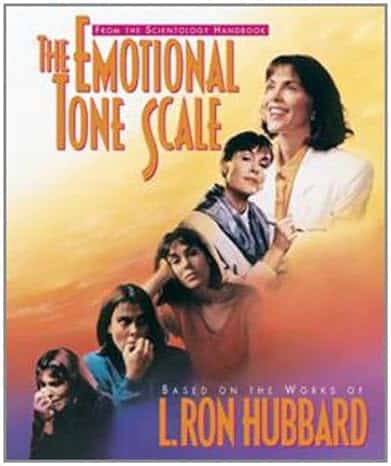
It’s so great. I’m so glad you said that because I haven’t thought about that in a little while. I’m just so glad to have that back in my awareness.
They study Kabbalah. If they got their head in the game, so to speak, they have one foot in this world and the other foot in the upper world on the other side of the veil. They’re traversing through both dimensions or planes of existence simultaneously. It’s not easy to do. You must remember that you’re playing like you’re in The Matrix while you’re getting some person trying to run you off the road with road rage. It’s hard to remember this stuff while you’re being kind of challenged. But if you can keep practicing, it gets easier and is a profound breakthrough.
That’s very cool. It sounds hard. It sounds very challenging but very cool.
But it’s worth it.
Well, I think if you’re able to master playing life as a game, which I will admit I have not mastered, how incredible. How about freeing and just being joyful because it’s just a game? I think I will try to make that same choice to live as though life is happening to me. I try to take that same thing so that when challenging things happen, I remind myself that it’s happening to me. It’s all good, but it’s not a perfect system.
We’re all just learning as we go along, but this idea of life happening to you and then evolving to life happening for you is a big leap forward. Then, another leap forward happens when you realize life is happening to you. So, in other words, you are determining whether there are global conflicts. You are determining whether your neighbors make peace with you or continue the battle, or you are determining with your positive expectancy, faith, trust, and certainty beyond logic that everything is happening for your highest and best good.
Whether you play it as a game or choose to have a positive attitude about it, either way, life keeps going; life keeps happening.
Therefore, you are creating the entirety of your reality, all of it. The entire world is. This is another Kabbalistic concept. The entire world was created for you. This world is created for you to serve God, not just the neighborhood, not just the city that you’re in, but the entire universe. It’s pretty amazing.
Mind Blowing, right?
Yeah, it’s fun stuff. They don’t call it this reality, a game or an illusion for nothing. There’s a whole religions that build this into their mythology. Samsara is what they call the illusion of this world in Buddhism. Maya is what they call it in Hinduism, and there’s a Hebrew word for it. In Judaism and Kabbalah, there’s this concept that all time, space and motion are all illusion.
It’s pretty compatible with the other religions in terms of this whole thing being an illusion. It’s a video game. You might as well play it for fun and not just treat it like it’s drudgery because that’s what you program into your video game. “Oh, you want drudgery? Do you want the other shoe to drop? Okay, coming right up.”
Well, the bottom line is whether you play it as a game, whether you choose to have a positive attitude about it or if you’re going through it, either way, life keeps going, life keeps happening. It’s all unfolding still. We can contribute to it unfolding in a more positive way.
Very true. What’s a favorite book, course, event, or spiritual teacher? Are there some resources that made a big, profound impact on your life?
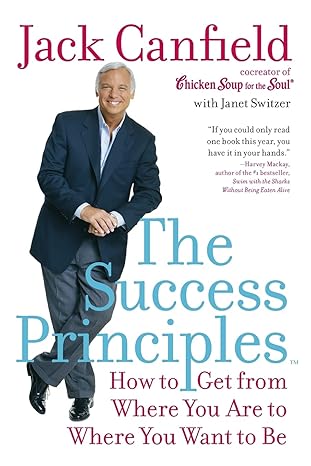
I really love The Success Principles by Jack Canfield. That was something I read early on that just started helping me look at things from a different perspective. Since then, I’ve definitely consumed a lot of other materials. But that was really awesome and getting me started.
Awesome. All right, well, I know we’re at a time here. If you could share the website for The Healthy Brain Center and where it’s located, city, state, and also your details if you want to share your social media or anything like that. Your personal website for getting people to book you for coaching, speaking gigs, or anything like that. Where should we send folks?
The Healthy Brain Center’s website is thehealthybraincenter.com, and you can also access the counseling centers. My personal website is bestselfelite.com. The Healthy Brain Center is located in San Jose, California. Some people fly in for the accelerated treatment for the week-long treatment. We have someone doing that to get that treatment done in a faster period of time. Then we’re also on Instagram, @thehealthybraincenter, Facebook, and LinkedIn.
Awesome. Well, thank you so much, Lindsay. Thank you for sharing your story so transparently and vulnerably. What you went through sounds like you really came out the other side. I know you’re not 100% now, but you’ve really turned lemons into lemonade, and you’re out there making a difference in the world. Kudos to you.
Thank you so much, and thanks for having me.
And thank you, listener. We’ll catch you on the next episode. I’m your host, Stephan Spencer, signing off.
Important Links
Connect with Lindsay Smith
Book
Businesses/Organizations
People
Previous Get Yourself Optimized Episode
Millionaire Marketer Finds His Purpose with Yanik Silver

